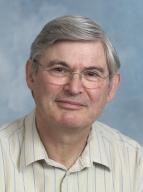
Professor Alan Fersht
University of Cambridge, UK
http://www2.mrc-lmb.cam.ac.uk/group-leaders/a-to-g/alan-fersht/
We use an amalgam of protein engineering, structural biology, biophysics and chemistry to study the structure, activity, stability and folding of proteins, and the role of protein misfolding and instability in cancer and disease. We focus on how mutation affects proteins in the cell cycle, particularly the tumour suppressor p53, in order to design novel anti-cancer drugs that function by restoring the activity of mutated proteins.
Cancer is a disease of mutation, and the most commonly mutated protein by far is the tumour suppressor p53. This protein, sometimes called the "Guardian of the Genome", does not only lead the major defence of the cell against cancer but also has a wide range of roles in the cell cycle, from fertility to senescence. It has a very complicated structure, comprised of two folded and three intrinsically disordered domains in each of its monomers that associate to form dimers and tetramers. It is a major hub protein and interacts with a host of other proteins involved in the cell cycle. We discovered that about 30% of oncogenic mutants of p53 are just temperatures sensitive and can, in theory, be rescued by small molecules.
Currently, we have two major projects. "Structural biology of the tumour suppressor p53 and its complexes" in which we are solving the structure of p53 complexed with its partner proteins, such as the Mdm2 and Mdm4, and their complexes. This work is a paradigm for solving the structures of partly disordered proteins, by combining a variety of structural methods.
"Tumour suppressor p53: structure, stability and novel anti-cancer drug development", funded by an ERC advanced grant, where we are finding the principles of stabilising p53 against denaturation and aggregation by small molecules for the rational design of drugs for rescue of mutants.

